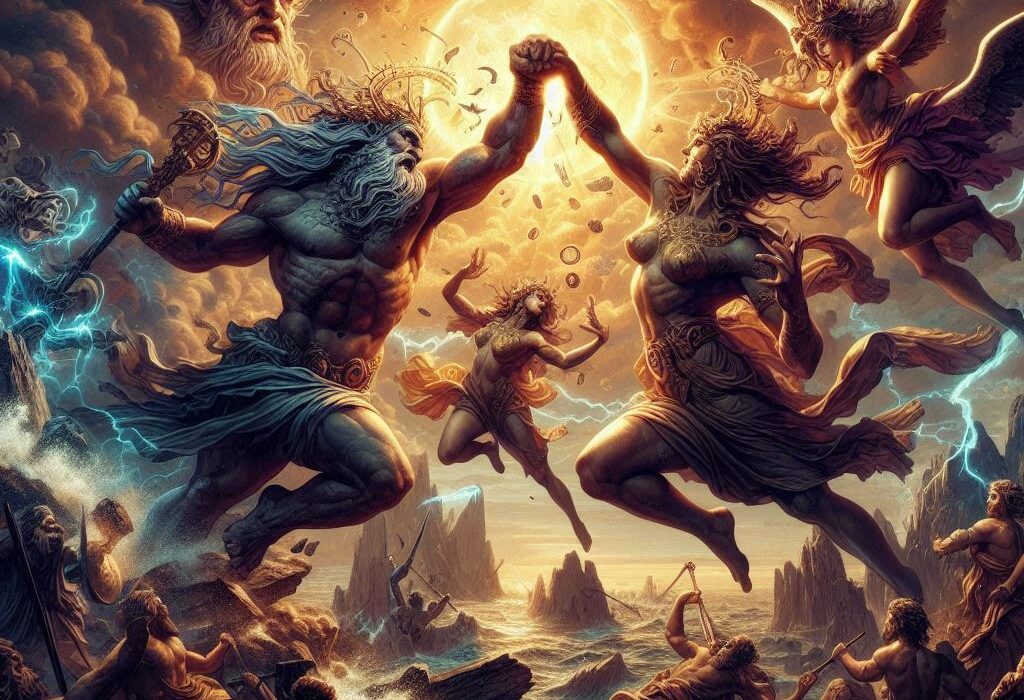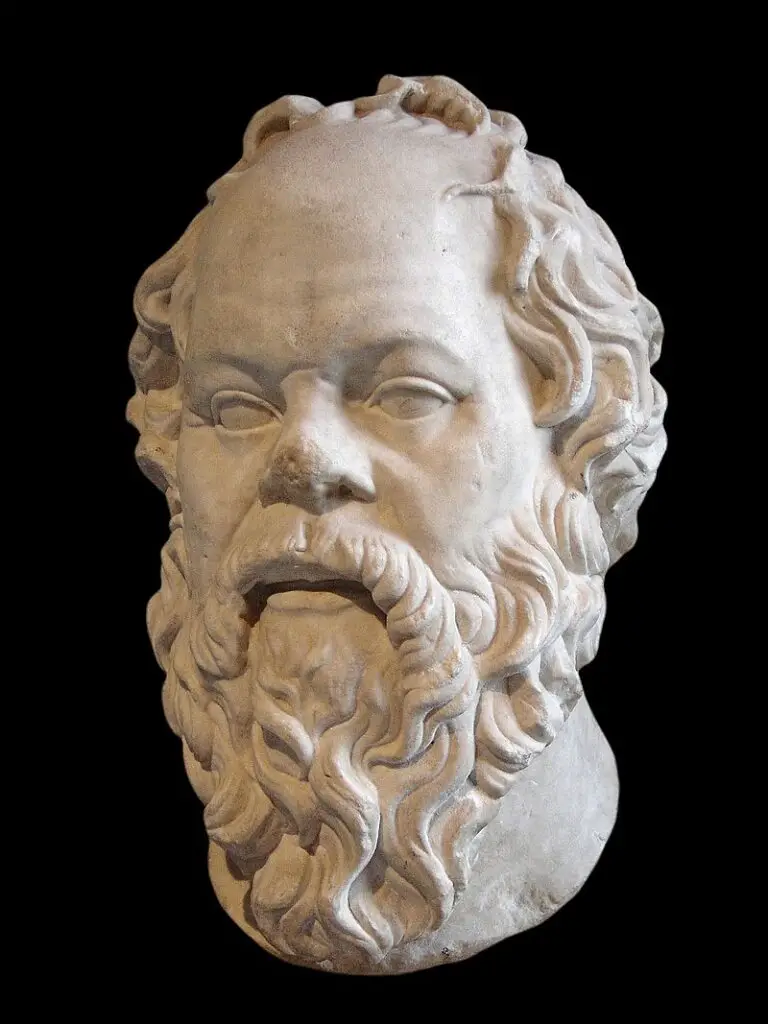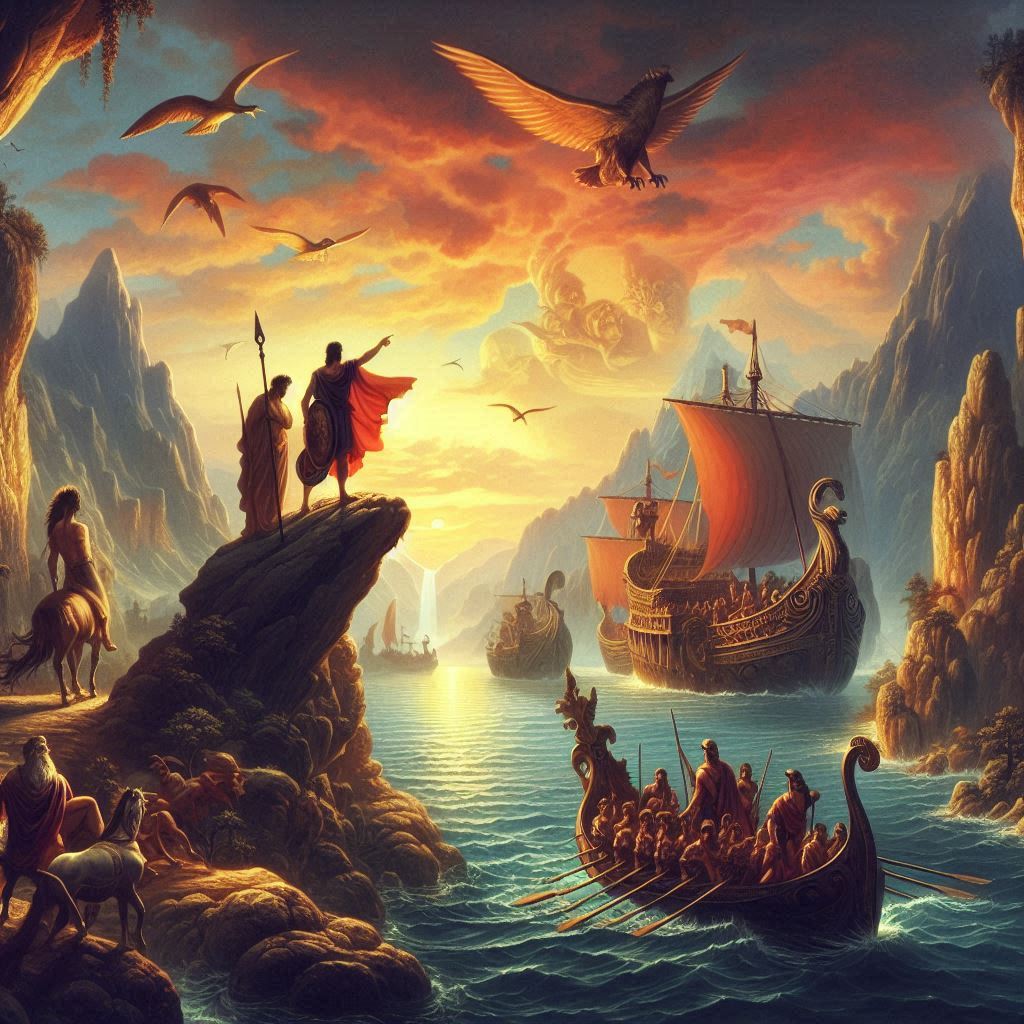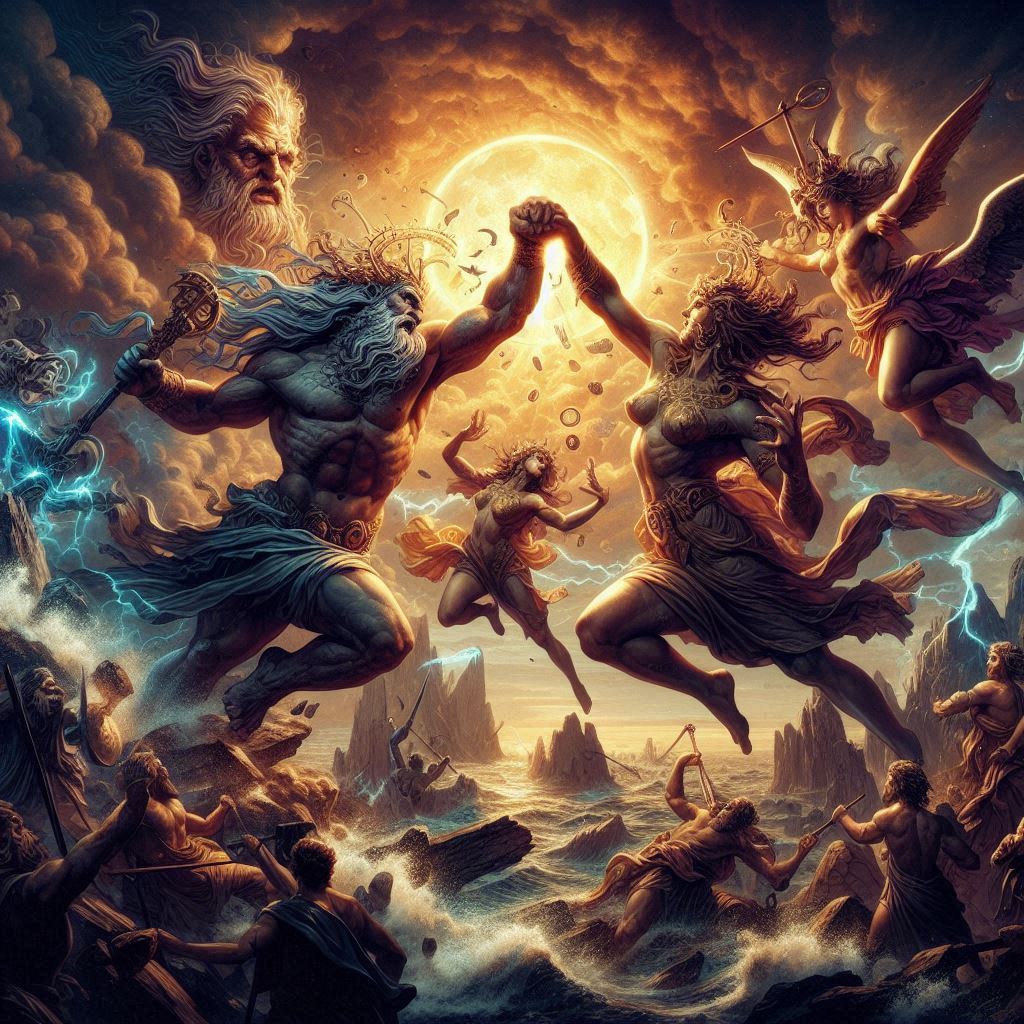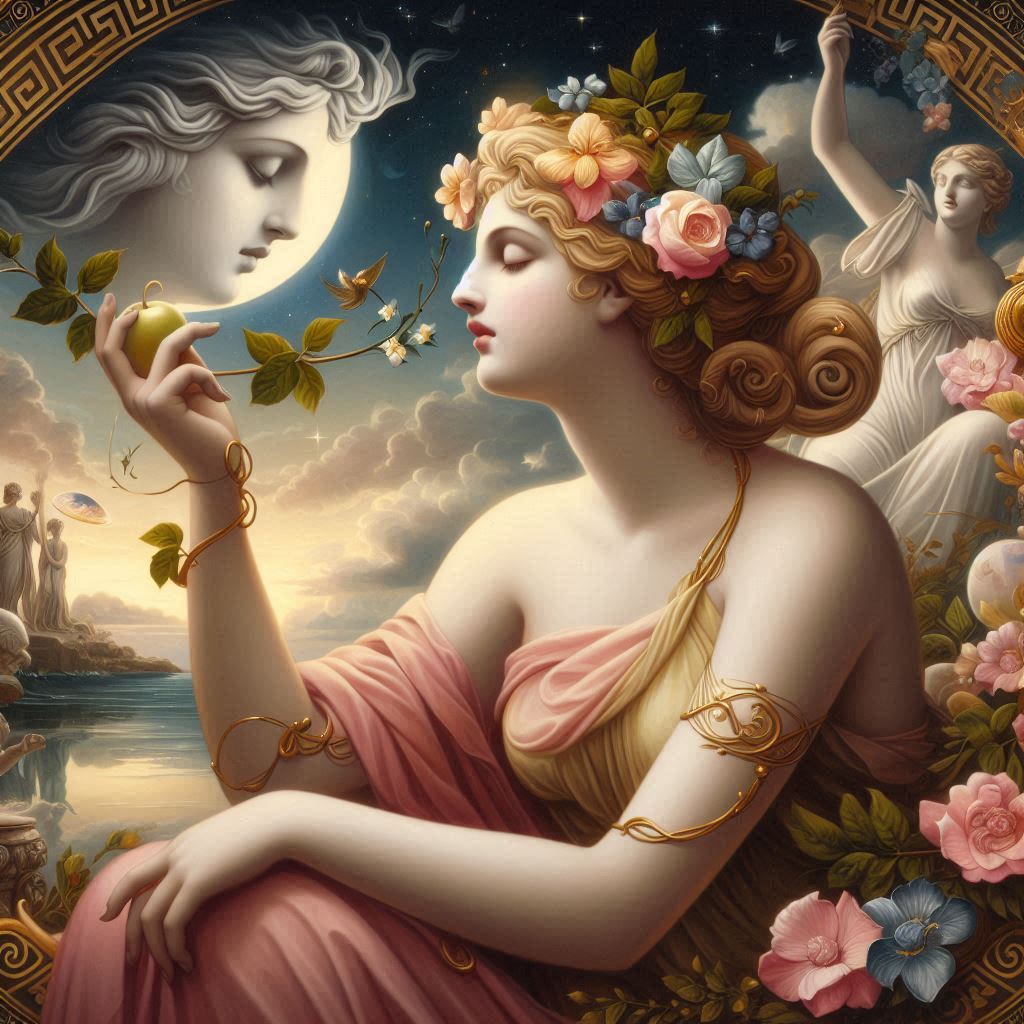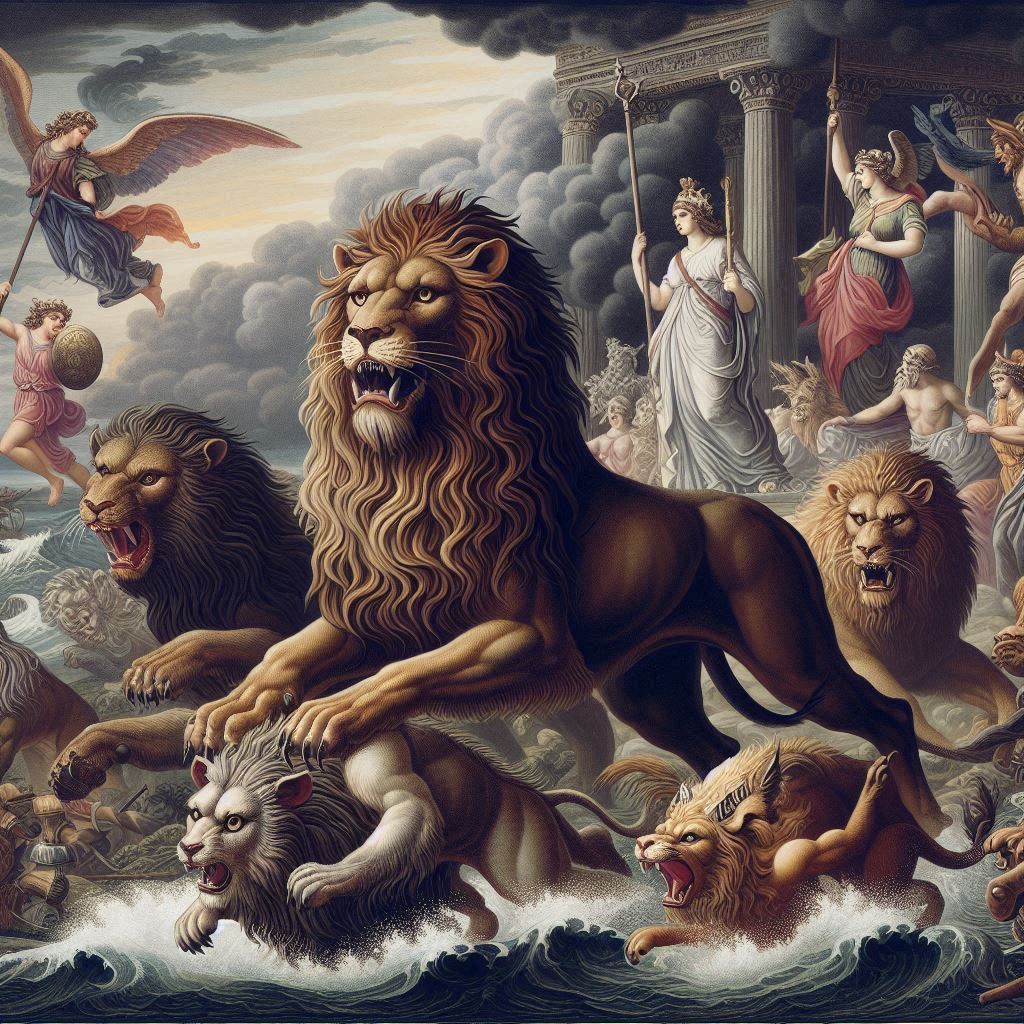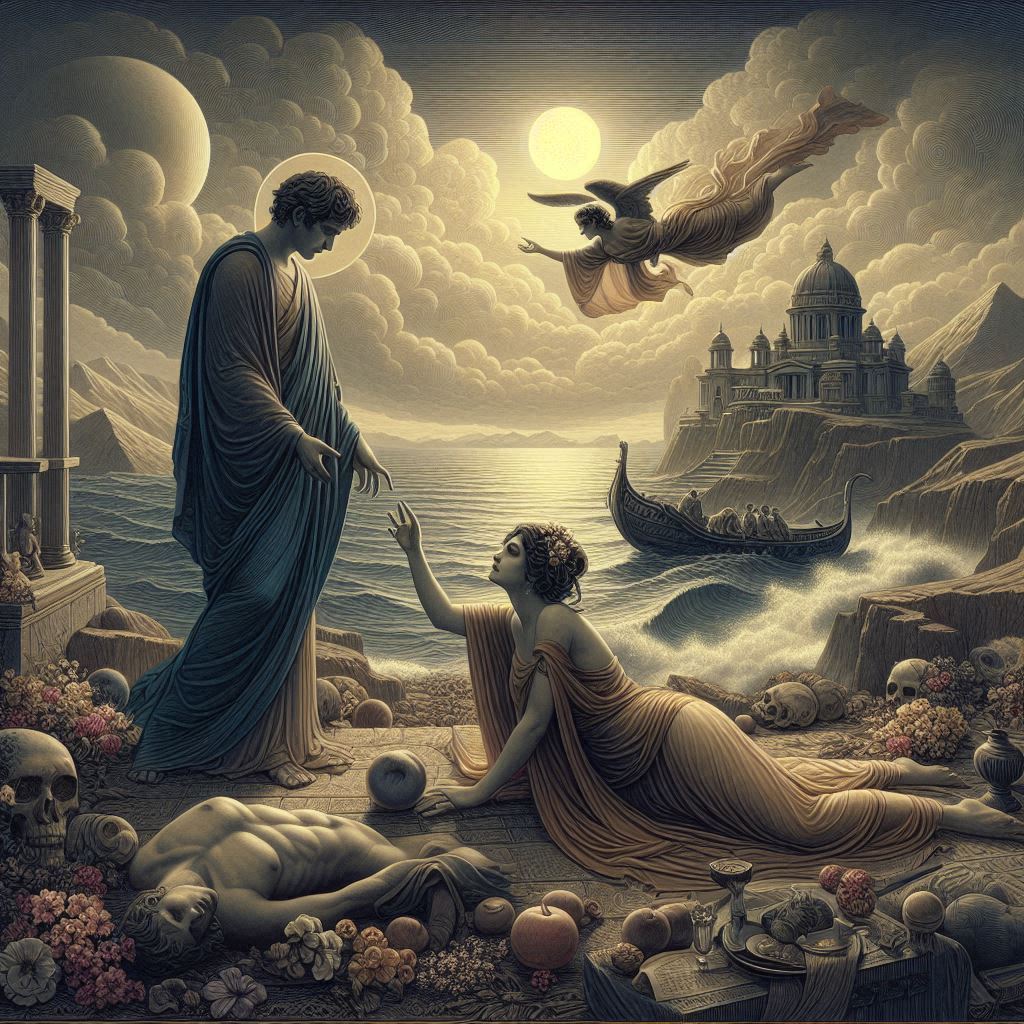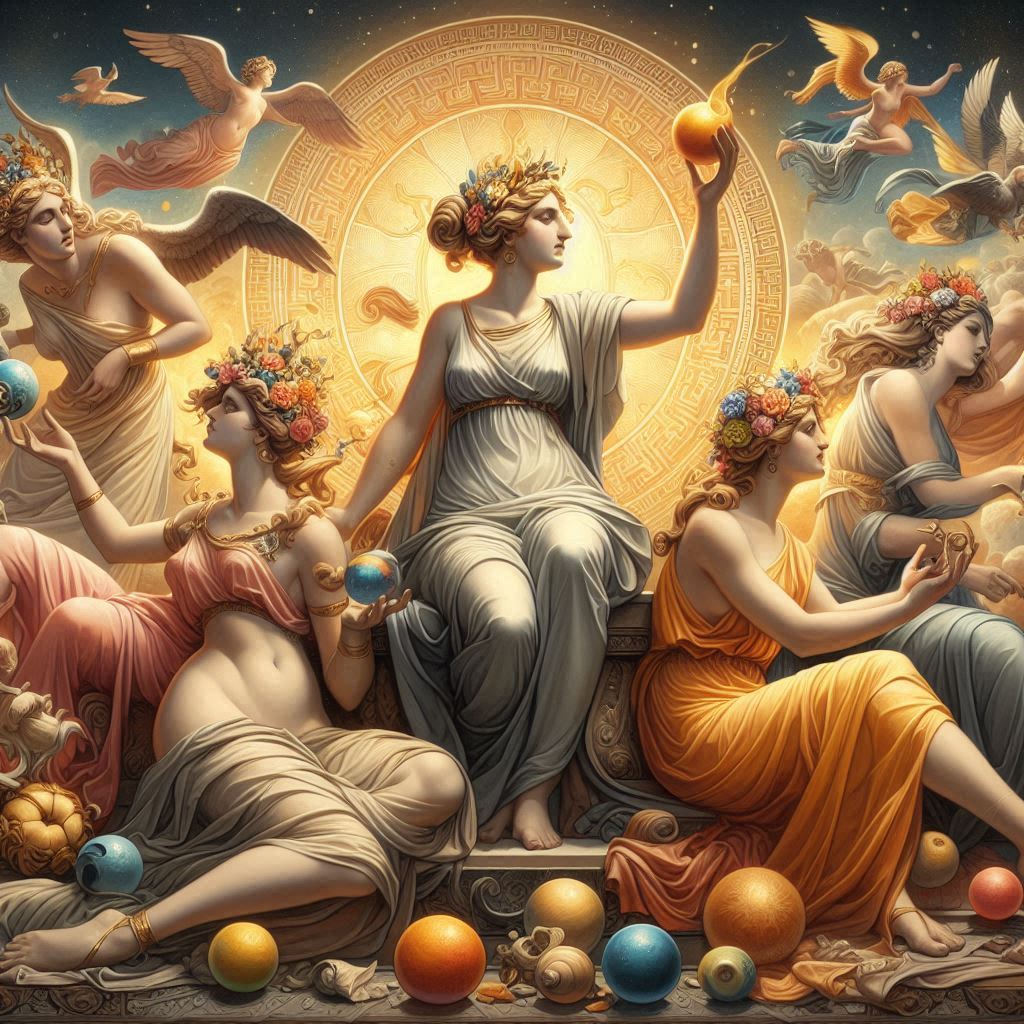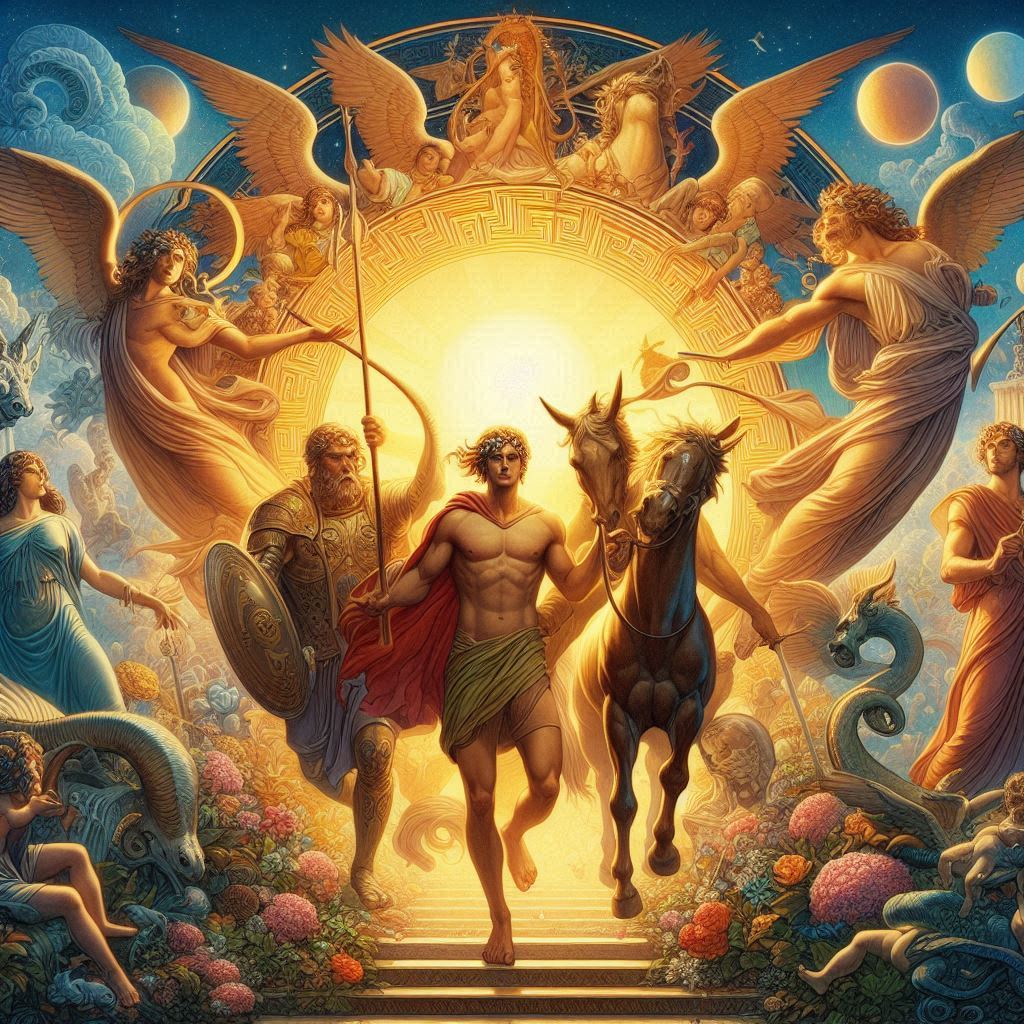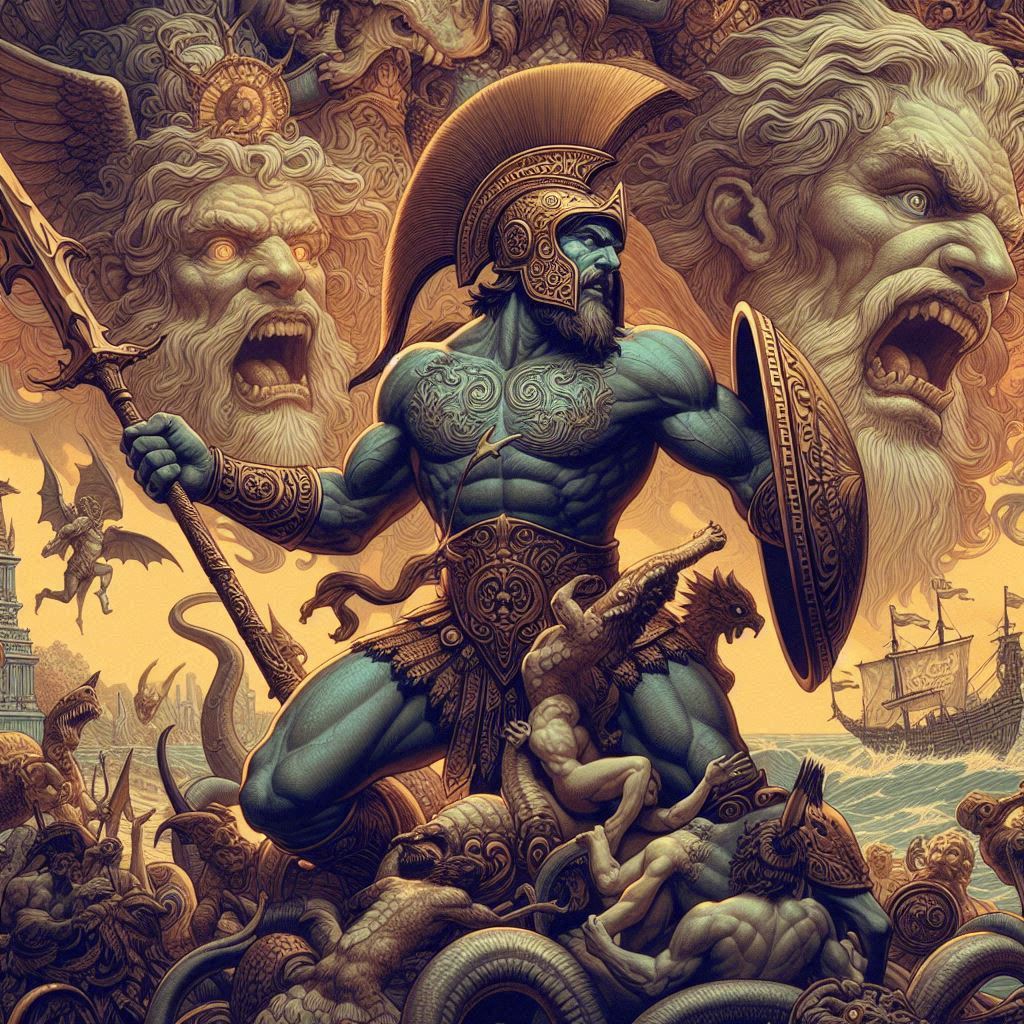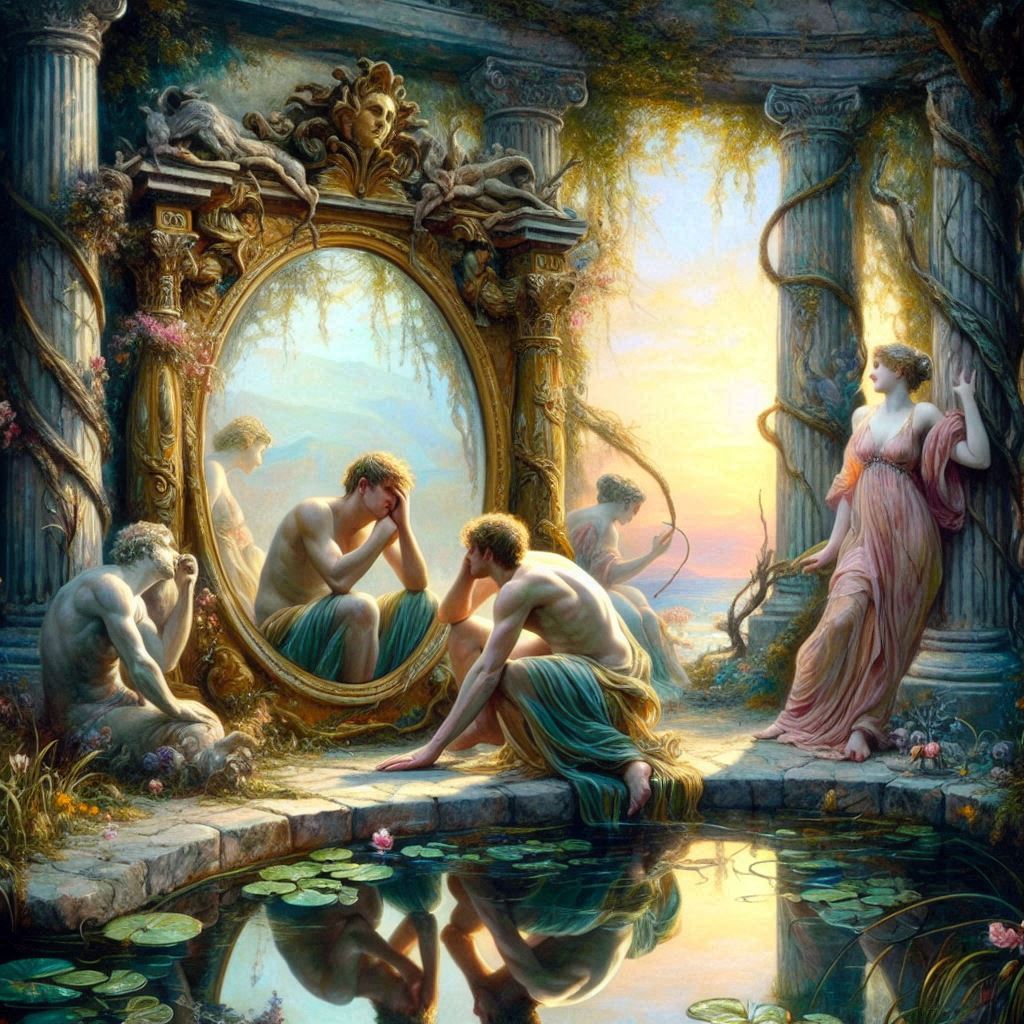In Greek mythology, the Titans represent a primordial race of powerful deities who predate the Olympian gods and embody the forces of nature, cosmic order, and elemental power. The Titans’ mythology is characterized by themes of creation, conflict, and the struggle for supremacy between the old and new generations of gods. From their origins as children of Gaia and Uranus to their epic clash with the Olympians in the Titanomachy, the Titans’ story is a foundational myth that shapes the narrative and symbolism of Greek mythology.
The Titans trace their lineage to Gaia, the Earth goddess, and Uranus, the sky god, who are among the first beings to emerge from the primordial chaos of creation. Together, Gaia and Uranus parented the Titans, a pantheon of powerful deities who personify the elements and phenomena of the natural world. The Titans include prominent figures such as Cronus, Rhea, Oceanus, Hyperion, Mnemosyne, and others, each embodying aspects of earth, sky, sea, and memory.
One of the central myths involving the Titans is the castration of Uranus by Cronus, his son, who rebels against his father’s tyranny and seizes control of the cosmos. With Gaia’s assistance, Cronus wields a sickle to castrate Uranus, separating heaven from earth and establishing his reign as the ruler of the Titans. This act of patricide and usurpation sets the stage for further conflicts and power struggles among the Titans and their descendants.
Cronus’s rule as the Titan king is marked by a prophecy foretelling his downfall at the hands of his own offspring. To prevent this prophecy from coming true, Cronus devours each of his children upon their birth, fearing that one of them will overthrow him as he did Uranus. However, his wife Rhea, grieving the loss of her children, manages to save one of their sons, Zeus, by hiding him away and presenting Cronus with a stone wrapped in swaddling clothes.
Zeus, raised in secret on the island of Crete, grows into a formidable deity determined to overthrow his father and free his siblings from Cronus’s tyranny. With the aid of his mother Rhea, the Hecatoncheires (Hundred-Handed Ones), and the Cyclopes, Zeus wages war against the Titans in a conflict known as the Titanomachy, or the Titanomachia.
The Titanomachy is a cataclysmic battle that pits the Titans and their allies against the Olympian gods and their supporters, including the Hecatoncheires and the Cyclopes. The war rages across the cosmos, with Zeus leading the charge against Cronus and his siblings, including Titans such as Hyperion, Oceanus, and Atlas. The Titans, with their immense power and elemental abilities, pose a formidable threat to the Olympians, leading to a prolonged and fierce struggle for supremacy.
One of the decisive moments in the Titanomachy is the liberation of the Hecatoncheires and the Cyclopes from Tartarus, the deepest abyss of the underworld where Cronus had imprisoned them. With their aid, Zeus gains a significant advantage over the Titans, unleashing thunderbolts, earthquakes, and storms to defeat his adversaries and assert his authority as the king of the gods.
The Titanomachy culminates in the defeat and imprisonment of the Titans in Tartarus, the domain of the underworld reserved for divine punishment. Zeus and the Olympian gods emerge victorious, establishing their reign over the cosmos and ushering in a new era of divine order and governance. The Titans, once rulers of the universe, are now relegated to a subordinate position, symbolizing the transition from the old order to the new in Greek mythology.
Despite their defeat, the Titans remain influential figures in Greek mythology, with some, like Prometheus and Atlas, playing significant roles in subsequent myths and legends. Prometheus, a Titan known for his intelligence and beneficence toward humanity, becomes a symbol of enlightenment and rebellion against divine authority. Atlas, punished by Zeus to bear the weight of the heavens on his shoulders, becomes an emblem of endurance and cosmic responsibility.
The Titans’ mythology continues to resonate in art, literature, and popular culture, serving as a symbol of primordial forces, elemental power, and the cyclical nature of cosmic order. Their clash with the Olympian gods represents a recurring theme in mythologies worldwide, reflecting humanity’s fascination with the struggle between old and new, tradition and innovation, and the eternal quest for power and dominance.
